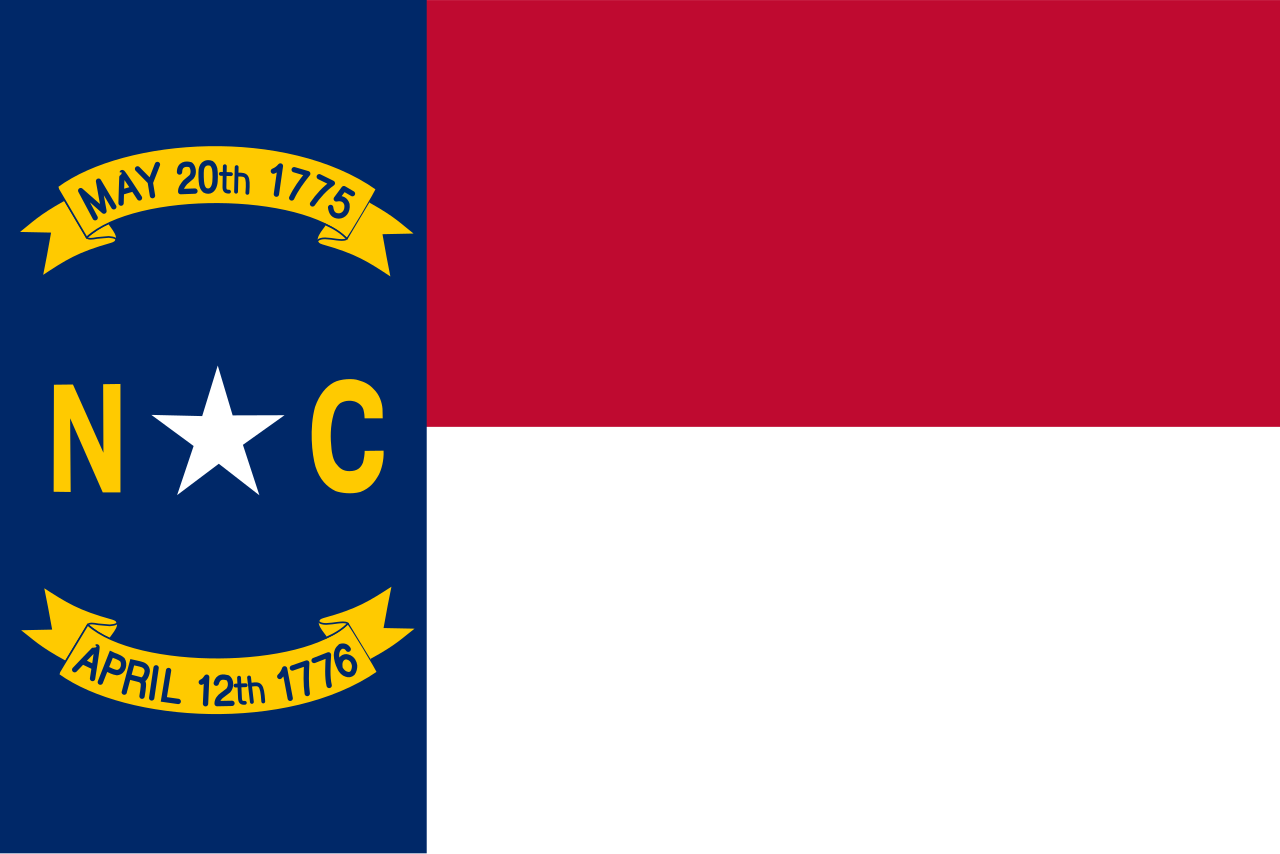
- + Permitless carry allowed
- + Minimal firearm restrictions
- ++ No registration required
- - Handgun permit required
- + Strong self-defense laws
- + Permissive transport laws

North Carolina allows concealed carry without a permit under House Bill 189 (effective December 1, 2023), known as "Freedom to Carry NC" (G.S. 14-415.11). Anyone 18 or older who can legally possess a firearm may carry concealed in most public places. A Concealed Handgun Permit (CHP) remains optional for reciprocity or other benefits (G.S. 14-415.10). CHP applicants need a 8-hour training course, background check, and fingerprints. Carry is banned in schools, state buildings, and bars (G.S. 14-269.2). Private property owners can prohibit firearms. Violations can lead to a misdemeanor (up to 1 year) or felony (up to 5 years) in restricted areas.
Costs: CHP costs $90, plus $50-$75 for fingerprints and $75-$150 for training. Total: $215-$315.
Processing Time: CHP takes up to 45 days.
Renewal: CHP lasts 5 years, costs $75, no retraining required.
Reciprocity: NC honors permits from all states; a CHP is recognized by 38 states, like SC and VA.
North Carolina permits open carry of handguns and long guns without a permit for anyone 18 or older who can legally possess a firearm (G.S. 14-269). Open carry is banned in schools, state buildings, and areas with posted signs (G.S. 14-269.2). Private businesses can prohibit it. Violations can lead to a misdemeanor (up to 1 year).
North Carolina has minimal restrictions on firearm types. Assault weapons and large-capacity magazines are legal (G.S. 14-288.7). Silencers, short-barreled rifles/shotguns, and machine guns are allowed if ATF-registered (26 U.S.C. § 5861). Ghost guns are legal with no serialization. Felons can’t possess firearms (G.S. 14-415.1). Federal violations can lead to felony charges (up to 10 years).
Costs: Federal tax stamps cost $200 each.
North Carolina follows FOPA (18 U.S.C. § 926A). Firearms must be unloaded and locked if passing through restrictive states. Open or concealed carry (permitless) is allowed in vehicles (G.S. 14-269). Carry is banned in federal facilities and schools (G.S. 14-269.2). Violations can lead to a misdemeanor (up to 1 year).
North Carolina requires a Pistol Purchase Permit or CHP for handguns (G.S. 14-402). Applicants must pass a background check; no permit is needed for long guns (18 U.S.C. § 922). Private sales of handguns require a permit or CHP. Violations can lead to a misdemeanor (up to 2 years).
Costs: Pistol permit costs $5; CHP costs $90 plus extras.
Processing Time: Permits take up to 14 days.
North Carolina does not require firearm registration (G.S. 14-288.7). Ghost guns need no serialization, and lost/stolen reporting isn’t mandatory. Federal NFA items must be registered (26 U.S.C. § 5861). Violations can lead to felony charges (up to 10 years).
Costs: Federal tax stamps cost $200.
North Carolina requires firearms to be stored inaccessible to minors if they’re likely to access them (G.S. 14-315.1). No general storage mandate exists. Violations can lead to a misdemeanor (up to 1 year) or felony (up to 5 years) if harm occurs.
Sources: [1]
North Carolina has a strong Castle Doctrine and Stand Your Ground law (G.S. 14-51.2, G.S. 14-51.3). Deadly force is allowed in your home, vehicle, or workplace if you believe it’s necessary to prevent harm, with no duty to retreat anywhere you’re legally present. Excessive force can lead to manslaughter (up to 20 years).